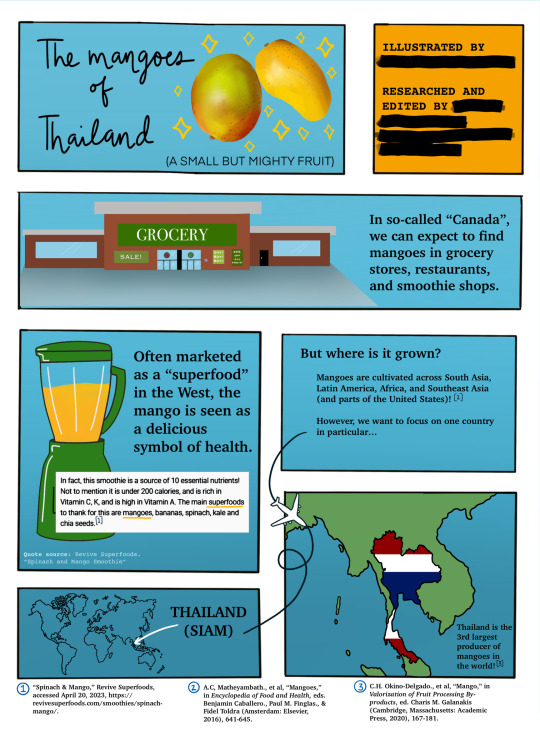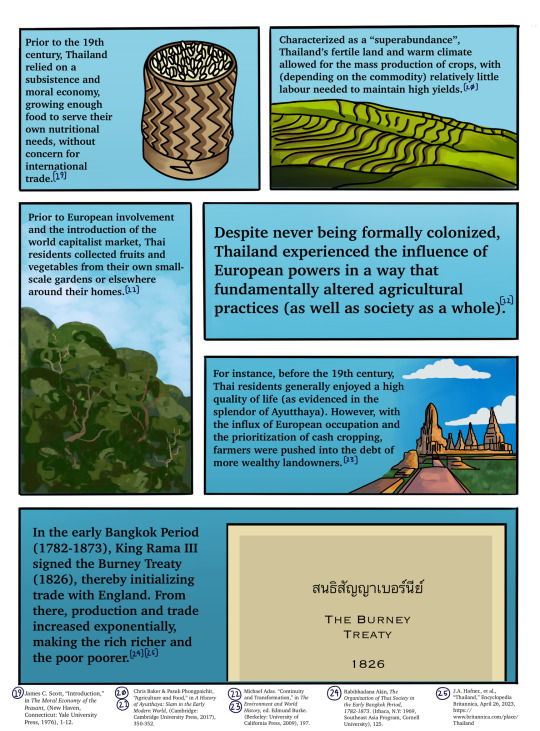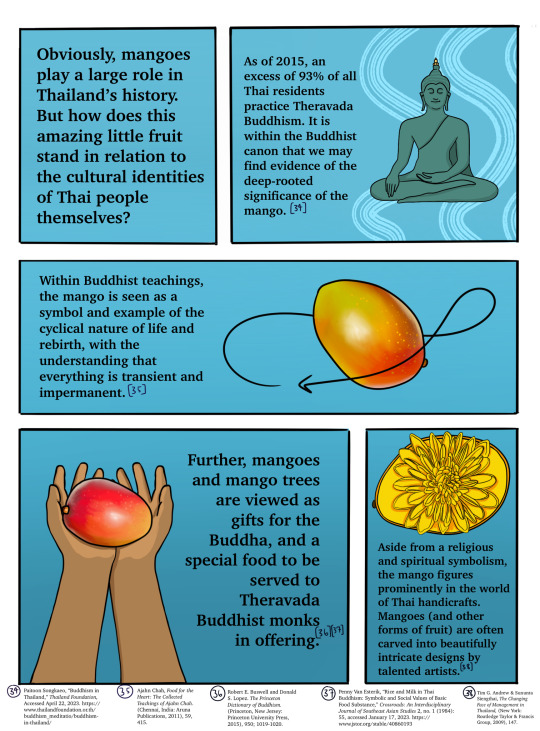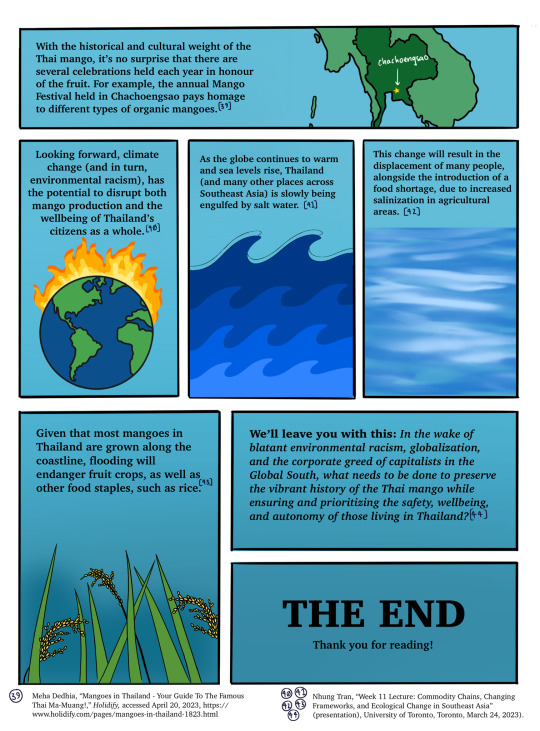#DECOLONIAL PRAXIS!!!!!!!!!!!!!!!
Text
I do think the dumbest, most egregious overstatement of harm in fandom spaces is acting like someone is doing an active act of modern colonization because they ship two characters from a 2000s animated Nickelodeon show
#zutara#telling people not to ship zutara and acting like thats decolonial praxis is SO DUMB#GO OUTSIDE#i miss when ship wars were just about the ship#now people act like shipping is first and foremost a political choice with active implications in the real world#i cna't live like this i jsut can't#most of this discourse is on tiktok at the moment#because tiktok is just the worst parts of tumblr all over agian
244 notes
·
View notes
Text
Decolonial Praxis Conference - Jan 19 & 20, 2024 at UC Riverside
#Decolonial Praxis#Decolonial Praxis Conference#Decolonial Praxis Conference 2024#The UCR Decolonial Collective#Decolonial
4 notes
·
View notes
Text







#mangoes in Thailand#mangoes#historical studies#decolonizing the classroom#decolonial praxis#southeast Asian food and culture#Southeast Asia#Thailand#Siam#ayutthaya#mango sticky rice#habitus
4 notes
·
View notes
Text
Revolution needs vision. The implementation of vision when successful at some point would engender violence because it would introduce a disruption and a crack into the calm waters of “reality”: that is, the common sense created through coloniality of knowledge and of being. Nevertheless, before and after violence, there is much that can be accomplished if the vision is pursued with determination, open-mindedness, and resolution, as Frantz Fanon tells us in the conclusion of The Wretched of the Earth. Vision in this case is tantamount to theory, and theory is a fundamental component of revolutionary praxis. There cannot be revolutionary praxis without theory. Praxis without theory is blind; theory without praxis is sequestered. Both join forces in that long-lasting horizon we can call vision and, in this case, decolonial visions.
Walter Mignolo and Catherine Walsh, On Decoloniality
#decoloniality#resistance#ontology#anti-capitalism#this book is so good and i think everyone should read it#it's genuinely useful in developing a functional vocabulary for talking about decoloniality and actually really well written#this quote is from the introduction which if you don't read anything else from it that at least is enough#it's about both praxis and theory and i do think you should read both parts#that being said the authors also state (and this is really interesting) that theory IS praxis#because when you're theorizing you ARE doing something#writing creates an entire world etc etc what sartre said etc etc#anyways#~~~
17 notes
·
View notes
Note
do u put your jeans in the dryer that shortens their life
No I don’t even have a dryer I just have Somali genetics so my legs disagree with trousers in general
#going to start wearing a macawis or suit pants with darts to let my thighs breathe everywhere as decolonial praxis#I’m not a North American coal miner I don’t need to dress like one ☝️
2 notes
·
View notes
Text
Wardrobe
I’m switching the camouflage of my shadow!
I reckon, the past has met its plateau.
Shame seems to be the source of spiritual vertigo.
Overthinking permits mental cobwebs to overgrow.
With radical acceptance, I shall mow!
Reframing and validating the dark, I’m choosing my afterglow;
Because the divine gave me the key to my crypto escrow.
Therefore, I will embody the golden ratio.
#poetry#ZisaAziza#NegressOfSaturn#Truths89#energy#healing#spirituality#theory#praxis#interpretation#self-ridicule#self-love#radical acceptance#release#decoloniality#it is what it is#neutrality
3 notes
·
View notes
Text
i'm reading a book for class, and uh. i'm getting a little emotional at points

if anyone is interested, the book is I Am Woman: A Native Perspective on Sociology and Feminism (1996[1988]) by Lee Maracle, and it's really really good so far!
#it discusses decolonial praxis and resistance and Indigenous feminism as a whole! i can share some passages if anyone is interested!#quotes#indigenous feminism#decolonization#not good omens
1 note
·
View note
Text
AMAZING article about what it means to participate in anti-Zionism work both online and in person.
If your anti-zionism does not in any way acknowledge that it is a way of thought and practice led by and for Palestinians, then you need to reevaluate your "anti-zionism" label.
Some passages that felt especially relevant to tumblr:
If we accept, as those with even the most rudimentary understanding of history do, that zionism is an ongoing process of settler-colonialism, then the undoing of zionism requires anti-zionism, which should be understood as a process of decolonisation. Anti-zionism as a decolonial ideology then becomes rightly situated as an indigenous liberation movement. The resulting implication is two-fold. First, decolonial organising requires that we extract ourselves from the limitations of existing structures of power and knowledge and imagine a new, just world. Second, this understanding clarifies that the caretakers of anti-zionist thought are indigenous communities resisting colonial erasure, and it is from this analysis that the strategies, modes, and goals of decolonial praxis should flow. In simpler terms: Palestinians committed to decolonisation, not Western-based NGOs, are the primary authors of anti-zionist thought. We write this as a Palestinian and a Palestinian-American who live and work in Palestine, and have seen the impact of so-called ‘Western values’ and how the centring of the ‘human rights’ paradigm disrupts real decolonial efforts in Palestine and abroad. This is carried out in favour of maintaining the status quo and gaining proximity to power, using our slogans emptied of Palestinian historical analysis.
Anti-zionist organising is not a new notion, but until now the use of the term in organising circles has been mired with misunderstandings, vague definitions, or minimised outright. Some have incorrectly described anti-zionism as amounting to activities or thought limited to critiques of the present Israeli government – this is a dangerous misrepresentation. Understanding anti-zionism as decolonisation requires the articulation of a political movement with material, articulated goals: the restitution of ancestral territories and upholding the inviolable principle of indigenous repatriation and through the right of return, coupled with the deconstruction of zionist structures and the reconstitution of governing frameworks that are conceived, directed, and implemented by Palestinians.
Anti-zionism illuminates the necessity to return power to the indigenous community and the need for frameworks of justice and accountability for the settler communities that have waged a bloody, unrelenting hundred-year war on the people of Palestine. It means that anti-zionism is much more than a slogan.
[...]
While our collective imaginations have not fully articulated what a liberated and decolonised Palestine looks like, the rough contours have been laid out repeatedly. Ask any Palestinian refugee displaced from Haifa, the lands of Sheikh Muwannis, or Deir Yassin – they will tell that a decolonised Palestine is, at a minimum, the right of Palestinians’ return to an autonomous political unit from the river to the sea.
When self-proclaimed ‘anti-zionists’ use rhetoric like ‘Israel-Palestine’ – or worse, ‘Palestine-Israel’ – we wonder: where do you think ‘Israel’ exists? On which land does it lay, if not Palestine? This is nothing more than an attempt to legitimise a colonial state; the name you are looking for is Palestine – no hyphen required. At a minimum, anti-zionist formations should cut out language that forces upon Palestinians and non-Palestinian allies the violence of colonial theft.
[...]
The common choice to centre the Oslo Accords, international humanitarian law, and the human rights paradigm over socio-historical Palestinian realities not only limits our analysis and political interventions; it restricts our imagination of what kind of future Palestinians deserve, sidelining questions of decolonization to convince us that it is the new, bad settlers in the West Bank who are the source of violence. Legitimate settlers, who reside within the bounds of Palestinian geographies stolen in 1948 like Tel Aviv and West Jerusalem, are different within this narrative. Like Breaking the Silence, they can be enlightened by learning the error of colonial violence carried out in service of the bad settlers. They can supposedly even be our solidarity partners – all without having to sacrifice a crumb of colonial privilege or denounce pre-1967 zionist violence in any of its cruel manifestations.
As a result of this course of thought, solidarity organisations often showcase particular Israelis – those who renounce state violence in service of the bad settlers and their ongoing colonisation of the West Bank – in roles as professionals and peacemakers, positioning them on an equal intellectual, moral, or class footing with Palestinians. There is no recognition of the inherent imbalance of power between these Israelis and the Palestinians they purport to be in solidarity with – stripping away their settler status. The settler is taken out of the historical-political context which afforded them privileged status on stolen land, and is given the power to delineate the Palestinian experience. This is part of the historical occlusion of the zionist narrative, overlooking the context of settler-colonialism to read the settler as an individual, and omitting their class status as a settler.
It is essential to note that Palestinians have never rejected Jewish indigeneity in Palestine. However, the liberation movement has differentiated between zionist settlers and Jewish natives. Palestinians have established a clear and rational framework for this distinction, like in the Thawabet, the National Charter of Palestine from 1968. Article 6 states, ‘The Jews who had normally resided in Palestine until the beginning of the Zionist invasion will be considered Palestinians.’
When individuals misread ‘decolonisation’ as ‘the mass killing or expulsion of Jews,’ it is often a reflection of their own entanglement in colonialism or a result of zionist propaganda. Perpetuating this rhetoric is a deliberate misinterpretation of Palestinian thought, which has maintained this position over a century of indigenous organising.
Even after 100 years of enduring ethnic cleansing, whole communities bombed and entire family lines erased, Palestinians have never, as a collective, called for the mass killing of Jews or Israelis. Anti-zionism cannot shy away from employing the historical-political definitions of ‘settler’ and ‘indigenous’ in their discourse to confront ahistorical readings of Palestinian decolonial thought and zionist propaganda.
[...]
In the context of the United States, the most threatening zionist institutions are the entrenched political parties which function to maintain the status quo of the American empire, not Hillel groups on university campuses or even Christian zionist churches. While the Anti-Defamation League (ADL) and the American Israel Public Affairs Committee (AIPAC) engage in forms of violence that suppress Palestinian liberation and must not be minimised, it is crucial to recognise that the most consequential institutions in the context of settler-colonialism are not exclusively Jewish in their orientation or representation: the Republican and Democratic Party in the United States do arguably more to manufacture public consent for the slaughtering of Palestinians than the ADL and AIPAC combined. Even the Progressive Caucus and the majority of ‘The Squad’ are guilty of this.
Leila Shomali and Lara Kilani
2K notes
·
View notes
Text
Do not, under any circumstances, promote, encourage, or share information about herbal abortifacients on social media. If those methods were safe and reliable, their would never have been a need for surgical abortions. You are not a doctor and spreading this kind of disinformation could seriously hurt someone.
Listen to the experts and take your activism cues from the people who know what they’re doing: https://www.plannedparenthoodaction.org/issues/abortion/roe-v-wade
1 note
·
View note
Text
Tbh, and I say this as someone who would on some days call myself a Marxist, I think Marx's understanding of pre-industrial societies and their relationship to the industrial core (especially those of the Americas and Asia, which in his defense were not well-understood by even European scholars at the time) is completely inaccurate and using that as a starting point and going no further into decolonial and anti-imperialist theory winds you up at radically inappropriate theories and praxis in many ways
650 notes
·
View notes
Text
Guide for Jewish Anti-Zionist Allyship
"This document, authored by Em Cohen in collaboration with GSC, jumpstarts the discussion of repositioning antizionism organizing within a praxis of Palestinian indigenous resistance. This is a beginning for folks to remember that the struggle against zionism is not a dispute between Jewish zionists and Jewish anti-zionists but a larger decolonial movement."
253 notes
·
View notes
Text
Just in case, some might enjoy. Had to organize some notes.
These are just some of the newer texts that had been promoted in the past few years at the online home of the American Association of Geographers. At: [https://www.aag.org/new-books-for-geographers/]
Tried to narrow down selections to focus on critical/radical geography; Indigenous, Black, anticolonial, oceanic/archipelagic, carceral, abolition, Latin American geographies; futures and place-making; colonial and imperial imaginaries; emotional ecologies and environmental perception; confinement, escape, mobility; housing/homelessness; literary and musical ecologies.
---
New stuff, early 2024:
A Caribbean Poetics of Spirit (Hannah Regis, University of the West Indies Press, 2024)
Constructing Worlds Otherwise: Societies in Movement and Anticolonial Paths in Latin America (Raúl Zibechi and translator George Ygarza Quispe, AK Press, 2024)
Fluid Geographies: Water, Science, and Settler Colonialism in New Mexico (K. Maria D. Lane, University of Chicago Press, 2024)
Hydrofeminist Thinking With Oceans: Political and Scholarly Possibilities (Tarara Shefer, Vivienne Bozalek, and Nike Romano, Routledge, 2024)
Making the Literary-Geographical World of Sherlock Holmes: The Game Is Afoot (David McLaughlin, University of Chicago Press, 2025)
Mapping Middle-earth: Environmental and Political Narratives in J. R. R. Tolkien’s Cartographies (Anahit Behrooz, Bloomsbury Publishing, 2024)
Midlife Geographies: Changing Lifecourses across Generations, Spaces and Time (Aija Lulle, Bristol University Press, 2024)
Society Despite the State: Reimagining Geographies of Order (Anthony Ince and Geronimo Barrera de la Torre, Pluto Press, 2024)
---
New stuff, 2023:
The Black Geographic: Praxis, Resistance, Futurity (Camilla Hawthorne and Jovan Scott Lewis, Duke University Press, 2023)
Activist Feminist Geographies (Edited by Kate Boyer, Latoya Eaves and Jennifer Fluri, Bristol University Press, 2023)
The Silences of Dispossession: Agrarian Change and Indigenous Politics in Argentina (Mercedes Biocca, Pluto Press, 2023)
The Sovereign Trickster: Death and Laughter in the Age of Dueterte (Vicente L. Rafael, Duke University Press, 2022)
Ottoman Passports: Security and Geographic Mobility, 1876-1908 (İlkay Yılmaz, Syracuse University Press, 2023)
The Practice of Collective Escape (Helen Traill, Bristol University Press, 2023)
Maps of Sorrow: Migration and Music in the Construction of Precolonial AfroAsia (Sumangala Damodaran and Ari Sitas, Columbia University Press, 2023)
---
New stuff, late 2022:
B.H. Roberts, Moral Geography, and the Making of a Modern Racist (Clyde R. Forsberg, Jr.and Phillip Gordon Mackintosh, Cambridge Scholars Publishing, 2022)
Environing Empire: Nature, Infrastructure and the Making of German Southwest Africa (Martin Kalb, Berghahn Books, 2022)
Sentient Ecologies: Xenophobic Imaginaries of Landscape (Edited by Alexandra Coțofană and Hikmet Kuran, Berghahn Books 2022)
Colonial Geography: Race and Space in German East Africa, 1884–1905 (Matthew Unangst, University of Toronto Press, 2022)
The Geographies of African American Short Fiction (Kenton Rambsy, University of Mississippi Press, 2022)
Knowing Manchuria: Environments, the Senses, and Natural Knowledge on an Asian Borderland (Ruth Rogaski, University of Chicago Press, 2022)
Punishing Places: The Geography of Mass Imprisonment (Jessica T. Simes, University of California Press, 2021)
---
New stuff, early 2022:
Belly of the Beast: The Politics of Anti-fatness as Anti-Blackness (Da’Shaun Harrison, 2021)
Coercive Geographies: Historicizing Mobility, Labor and Confinement (Edited by Johan Heinsen, Martin Bak Jørgensen, and Martin Ottovay Jørgensen, Haymarket Books, 2021)
Confederate Exodus: Social and Environmental Forces in the Migration of U.S. Southerners to Brazil (Alan Marcus, University of Nebraska Press, 2021)
Decolonial Feminisms, Power and Place (Palgrave, 2021)
Krakow: An Ecobiography (Edited by Adam Izdebski & Rafał Szmytka, University of Pittsburgh Press, 2021)
Open Hand, Closed Fist: Practices of Undocumented Organizing in a Hostile State (Kathryn Abrams, University of California Press, 2022)
Unsettling Utopia: The Making and Unmaking of French India (Jessica Namakkal, 2021)
---
New stuff, 2020 and 2021:
Mapping the Amazon: Literary Geography after the Rubber Boom (Amanda Smith, Liverpool University Press, 2021)
Geopolitics, Culture, and the Scientific Imaginary in Latin America (Edited by María del Pilar Blanco and Joanna Page, 2020)
Reconstructing public housing: Liverpool’s hidden history of collective alternatives (Matt Thompson, University of Liverpool Press, 2020)
The (Un)governable City: Productive Failure in the Making of Colonial Delhi, 1858–1911 (Raghav Kishore, 2020)
Multispecies Households in the Saian Mountains: Ecology at the Russia-Mongolia Border (Edited by Alex Oehler and Anna Varfolomeeva, 2020)
Urban Mountain Beings: History, Indigeneity, and Geographies of Time in Quito, Ecuador (Kathleen S. Fine-Dare, 2019)
City of Refuge: Slavery and Petit Marronage in the Great Dismal Swamp, 1763-1856 (Marcus P. Nevius, University of Georgia Press, 2020)
63 notes
·
View notes
Note
You were right about tankies. They do not talk about tiananmen square. They do not talk about Tibet. They do not talk about uyghur. Wtf. No how is this possible? What?
The thing is that most white and western leftists are exactly as racist, imperialist, ethnocentric and tinhatted as right-wingers. For Global South people there's literally no difference in interacting with them sometimes, even if they talk more sense by virtue of their leftist politics. In that, they have a lot in common with liberals; they say all the right things until they're challenged in any meaningful way, which is when the mask slips.
Self-serving, egoistic people aren't saved by reading a bunch of political posts and books. True dedication to social justice requires humility first and foremost, a solid set of ethical and moral hard lines in engagement, and constant self-interrogation. It has to be moved by compassion for your fellow human and sense of accountability, not ideological fanaticism as result of personal disenfranchisement and sense of victimization at being excluded from privilege. Marxists (not even just Tankies) love to accuse conservatives and liberals of unquestioning ideological servitude and selfishness without ever looking in the mirror. They have absolutely no racial or decolonial praxis because that primarily involves listening and centering colonized and Global South people, instead of amplifying themselves to virtue-signal and chase clout.
In essence they're just bad human beings, exactly like every other self-victimizing, self-aggrandizing Zionist, TERF and MAGA-hat (both red and blue) that treat accountability like a personal threat and place ideology over human beings. That's why I say it's important to separate politics from your morals and ethics. Your politics are supposed to change but your moral and ethical foundation cannot.
Personally I take great comfort in being proven wrong about my beliefs almost daily. At least 95% of everything I have ever assumed to be true has been proven wrong, which is what gives me more confidence in the remaining 5%. I love being wrong because knowing that means I'm doing something right. I see so many people on here be the same way, it's honestly lovely and gives me faith and hope for humanity. That's real leftism.
#asks#anon#tankies#western leftists#western imperialism#colonialism#racism#decolonization#knee of huss#leftism
84 notes
·
View notes
Text
this is how my last moments went:
hamas terrorist: hi my name is yusuf al-freedom. I like cats and peace and I am 8 years old.
me (barib): I am a real person and not at all a lie a social media scammer made up in order to capitalize on a war that is costing so many lives. I am going to kill you for no reason at all.
hamas terrorist: no please don't I like adventure time and olivia rodrigo.
me (barib): sorry not sorry *shoots him*
hamas terrorist: I really didn't want to do this because I am very peacefull so just know I am doing this as decolonialization praxis *shoots me harder*
me (barib): *is dead*
65 notes
·
View notes
Text
I know everyone hates the us gov rn as do I but a grant just came through that is unimaginably important to the specific area of decolonial praxis I work in and which might allow me to actually find work in it in the future/
35 notes
·
View notes
Text
If we accept, as those with even the most rudimentary understanding of history do, that zionism is an ongoing process of settler-colonialism, then the undoing of zionism requires anti-zionism, which should be understood as a process of decolonisation. Anti-zionism as a decolonial ideology then becomes rightly situated as an indigenous liberation movement. The resulting implication is two-fold. First, decolonial organising requires that we extract ourselves from the limitations of existing structures of power and knowledge and imagine a new, just world. Second, this understanding clarifies that the caretakers of anti-zionist thought are indigenous communities resisting colonial erasure, and it is from this analysis that the strategies, modes, and goals of decolonial praxis should flow. In simpler terms: Palestinians committed to decolonisation, not Western-based NGOs, are the primary authors of anti-zionist thought.
EDIT: why didn't it include the link??? i made a link post... smh
8 notes
·
View notes